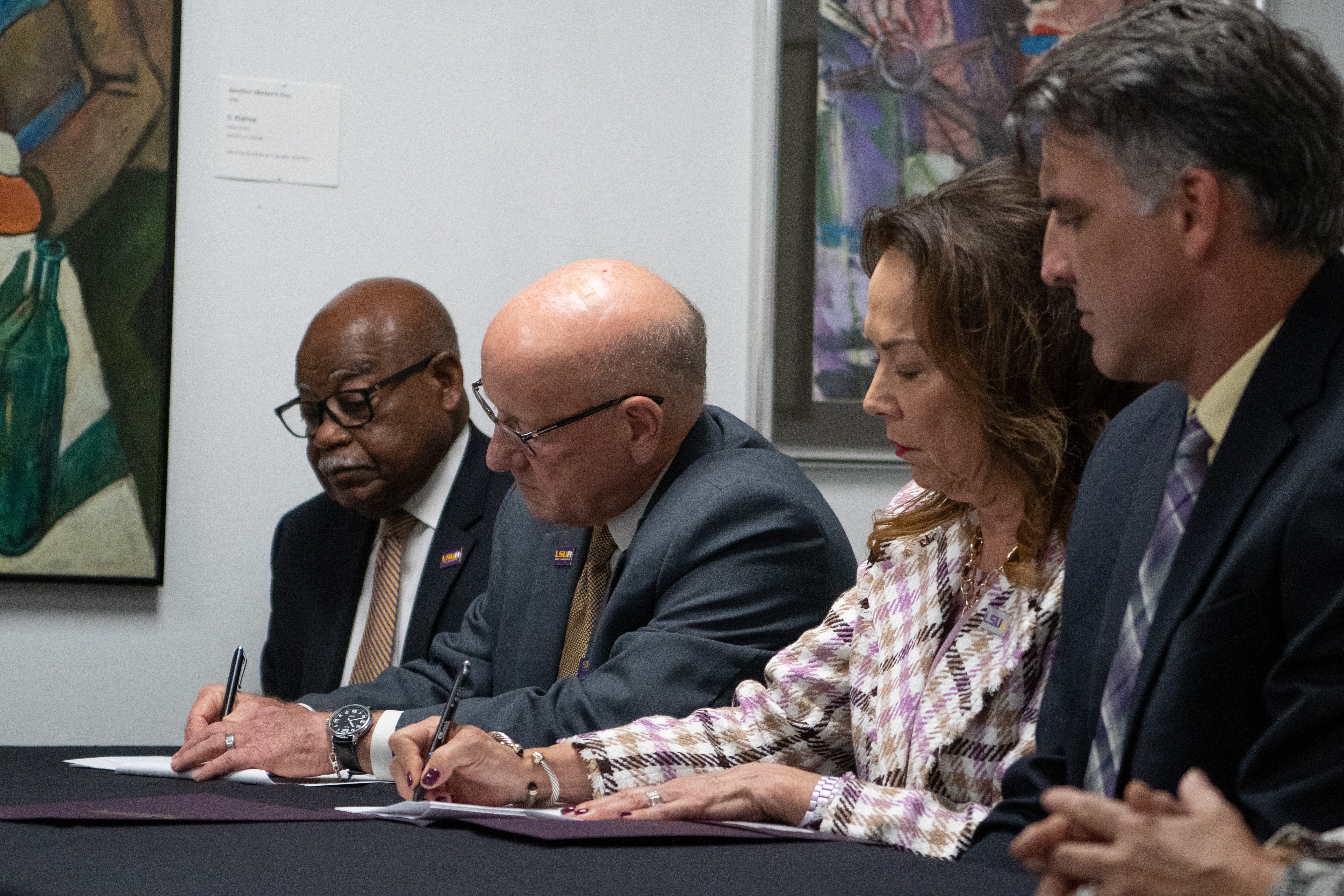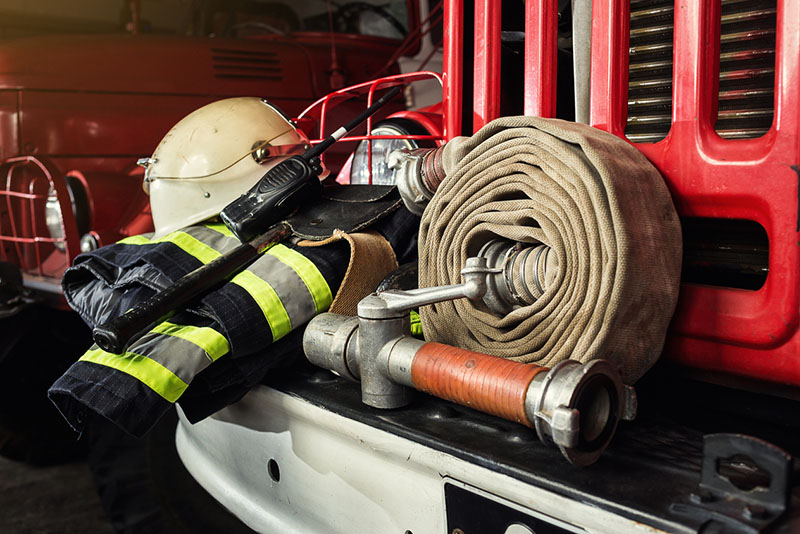About the Certificate of Technical Studies in Fire Service Technology
What You'll Learn
- The science of how fires begin and behave
- Methods of fire prevention and suppression
- Safety and survival in emergency situations
- Building codes and building inspection
Examples of Career Opportunities
Graduates can work in a variety of settings including:
- Federal, state, and local firefighting organizations
- Emergency Management organizations
- Private industries
Degree Requirements - 36 Total Required Credits
For additional detailed information on coursework, please visit the Academic Catalog Curriculum.
-
ENGL 1001 - English Composition
-
FSCI 1101 - Fire Behavior and Combustion
-
INDS 1102 - Hazardous Materials
-
FSCI 1001 - Principles of Emergency Services or PBSA 1001 - Fundamentals of Corporate
and Municipal Public Safety Administration
-
FSCI 1192 - Firefighting Essentials or FSCI 2154 - Fire Fighting Tactics and Strategy
-
FSCI 2150 - Fire Service Personnel Management
-
FSCI 2152 - Principles of Fire and Emergency Services Safety and Survival
-
FSCI 2155 - Fire Protection Systems and Equipment
-
FSCI 2210 - Fire Prevention and Inspection
-
FSCI 2502 - Building Construction Structural Technology
-
PBSA 2510 - Legal Aspects of the Emergency Services
-
FOSC or FSCI elective
Job Market Outlook
Use this employment data from across the country to help inform your decision making.
The default location is Louisiana, but adjust the location as you like.
Lec. 3; Cr. 3
Introductory course in writing, largely expository, accompanied by selected readings.
Emphasis on basic rhetorical methods used commonly in exposition.
Prerequisite(s): A grade of “C” or better in ENGL 0001 or ACT English score of 18
or greater.
Lec. 3; Cr. 3
This course explores the theories and fundamentals of how and why fires start, spread,
and are controlled. This course meets USFA FESHE national core curriculum standards.
Prerequisite(s): Eligibility for college-level mathematics or permission from the
Coordinator of Public Protection & Safety or Dean of Liberal Arts. Formerly: FOSC
1101
Lec. 3; Cr. 3
A study of the problems of chemically active and hazardous materials, their transportation,
storage, usage, and fire potential.
Articulation: Hazardous Materials Awareness & Hazardous Materials Operations certificates.
Lec. 3; Cr. 3
This course provides an overview of fire protection and emergence services; career
opportunities in fire protection and related fields; culture and history of emergency
services; fire loss analysis; organization and function of public and private fire
protection service; fire departments as part of local government; laws and regulations
affecting the fire service; fire service nomenclature; specific fire protection functions;
basic fire chemistry and physics; introduction to fire protection systems; introduction
to fire strategy and tactics; and life safety initiatives. This course meets USFA
FESHE National Standards.
Articulation: Fire Fighter I certificate.
Lec. 3; Cr. 3
This course examines safety and security concerns of each component of corporate and
municipal public safety functions, including policies, procedures, public education,
health and safety programs, and the administrative processes.
Lec. 2; Lab. 1; Cr. 3
Firefighting essentials is intended to offer a clear and concise performance standard
that could be used to determine if a person possesses all the necessary skills to
be a firefighter.
Articulation: Fire Fighter II certificate.
Prerequisite(s): FSCI 1001 or PBSA 1001 with a C or better or permission from the
Coordinator of Public Protection & Safety or Dean of Liberal Arts.
Lec. 3; Cr. 3
The study of effective and efficient utilization of manpower, equipment, and apparatus
on the fire ground. Emphasis will be placed on pre-fire planning, fire ground decision-making,
implementing tactics, and disaster planning. Problems will be presented on various
sized simulated fire situations from small one-company response to multi-department
response.
Prerequisite(s): FSCI 1001 or PBSA 1001 with a C or better or permission from the
Coordinator of Public Protection & Safety or Dean of Liberal Arts.
Lec. 3; Cr. 3
This course addresses the specific issues related to fire service human resources.
These issues include an investigation of the recruitment, selection, maintenance,
development, utilization, and accommodation of human resources by fire service organizations.
Articulation: Fire Officer I & II certificates.
Prerequisite(s): FSCI 1001 or PBSA 1001 with a C or better or permission from the
Coordinator of Public Protection & Safety or Dean of Liberal Arts.
Lec. 3; Cr. 3
This course introduces the basic principles and history related to the national firefighter
life safety initiatives, focusing on the need for cultural and behavioral change throughout
the emergency services. This course meets USFA FESHE national core curriculum standards.
This course introduces the basic principles and history related to the national firefighter
life safety initiatives, focusing on the need for cultural and behavioral change throughout
the emergency services. This course meets USFA FESHE national core curriculum standards.
Lec. 3; Cr. 3
This course provides information relating to the features and design and operation
of fire alarm systems, water-based fire suppression systems, special hazard fire suppression
systems, water supply for fire protection and portable fire extinguishers. This course
meets USFA FESHE national core curriculum standards.
Prerequisite(s): FSCI 1001 or PBSA 1001 with a C or better or permission from the
Coordinator of Public Protection & Safety or Dean of Liberal Arts.
Lec. 3; Cr. 3
This course provides fundamental knowledge relating to the field of fire prevention.
Topics include: history and philosophy of fire prevention, organization and operation
of a fire prevention bureau; use and application of codes and standards; plans review;
fire inspections; fire and life safety education; and fire investigation. This course
meets USFA FESHE national core curriculum standards.
Articulation: Fire Inspector I & II certificates.
Prerequisite(s): FSCI 1001 or PBSA 1001 with a C or better or permission from the
Coordinator of Public Protection & Safety or Dean of Liberal Arts.
Lec. 3; Cr. 3
This course provides the components of building construction related to firefighter
and life safety. The elements of construction and design of structures are shown to
be key factors when inspecting buildings, preplanning fire operations, and operating
at emergencies. This course meets USFA FESHE national core curriculum standards.
Prerequisite(s): Must be eligible to enroll in ENGL 1001 and MATH 1021 and/or consent
of the Dean, Division of Health Sciences and Business Technology.
Lec. 3; Cr. 3
This course introduces the Federal, State, and local laws that regulate emergency
services, national standards influencing emergency services, standard of care, tort,
liability, and a review of relevant court cases.
|





